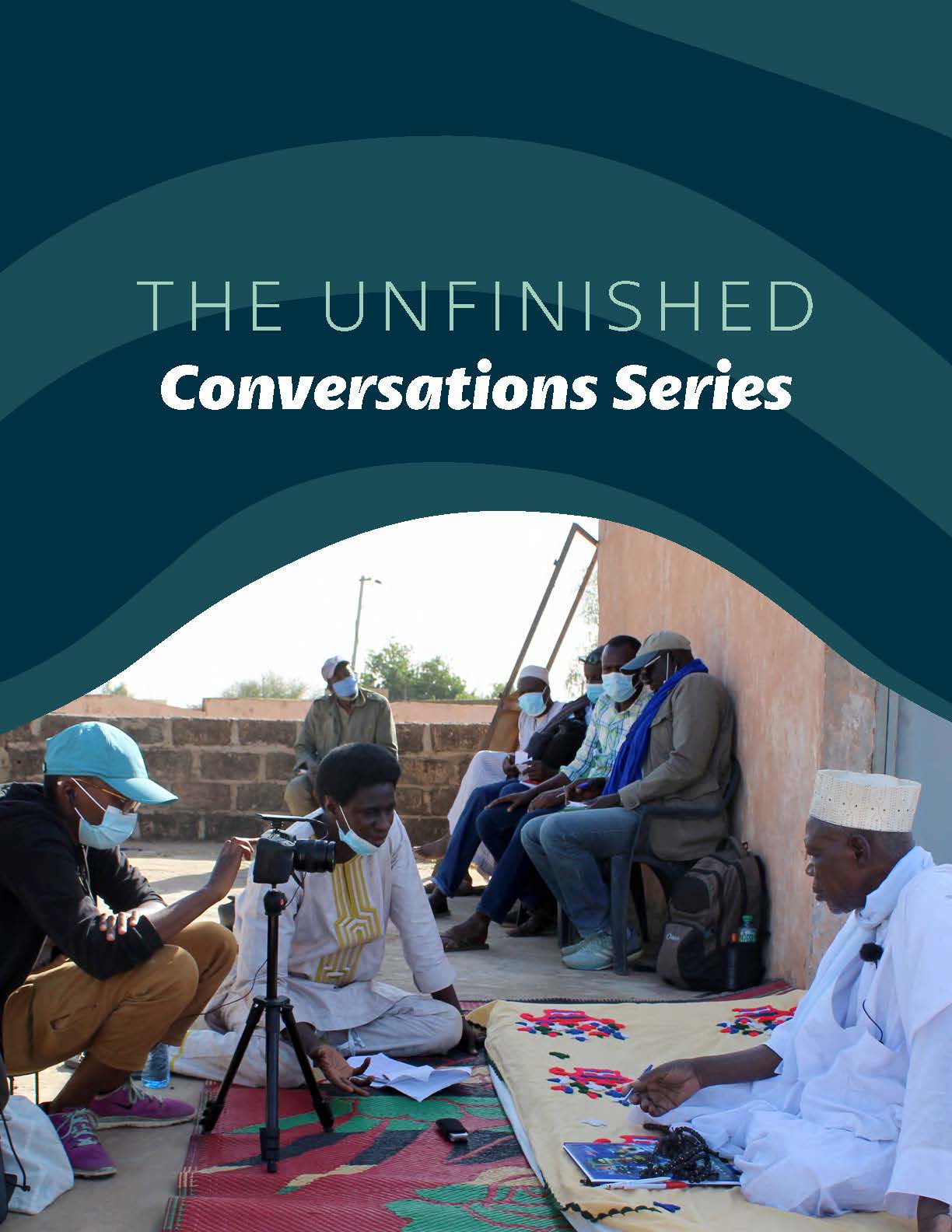The Unfinished Conversations Series was catalyzed by the Simmons Center with the Smithsonian Institution National Museum of African American History and Culture in partnership with museums and communities in Senegal; Liverpool, United Kingdom; Africatown, United States of America; Rio de Janeiro, Brazil; Capetown and the Groot Constantia Wine Estate of South Africa; neighborhoods surrounding Brussels, Belgium; with communities in Kinshasa and the Kimbanguist Church in the Democratic Republic of the Congo as well as communities in Jamaica and the Charles Town Maroons. The full global archive of over 150 interviews across four continents is housed at the John Hay Library at Brown University.
The project is made possible through generous funding from the Abrams Foundation and the Wyncote Foundation.
About the Exhibition
Racial slavery and European colonialism were foundational planks of the making of the modern world. However, that historical story has yet to be fully told. Catalyzed by the Simmons Center in 2014, the Global Curatorial Project was formed to tell that story. Its mission was to develop an international exhibition showcasing how these global systems shaped the modern world. The project foregrounds the experiences, lives, ideas, and ways in which the enslaved and the colonized attempted to “make a way out of no way.” As it unfolded, new issues emerged – if the voices of the enslaved and the colonized were going to be foregrounded, then how do we create a curatorial practice to achieve this? Out of this unfolding, a new archive was born – The Unfinished Conversations Series.
Digitally archived at the John Hay Library, The Unfinished Conversation Series is a living repository composed of more than 150 interviews that have taken place in nine languages across four continents. Drawing inspiration from the idea of the Black cultural theorist Stuart Hall, that cultural identity and history are not fixed but an “ever-unfinished conversation,” this oral history project was an experiment in decolonial curatorial practice. In this new archive, the descendants of the enslaved and the colonized shared their lived experiences and historical memories.
The exhibition is a glimpse into the living repository that has been collected and is part of a broader constellation of initiatives, which includes the international exhibition In Slavery’s Wake: Making Black Freedom in the World, publications, documentaries, and a digital humanities project.
